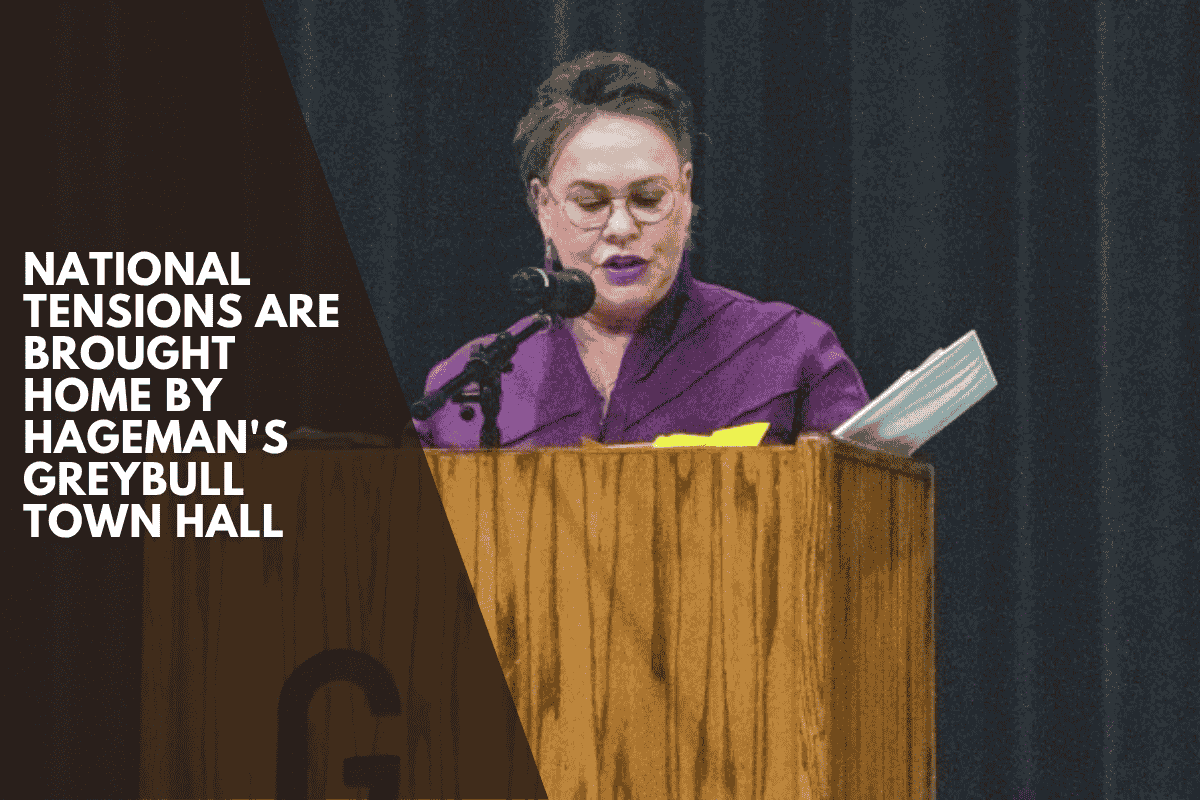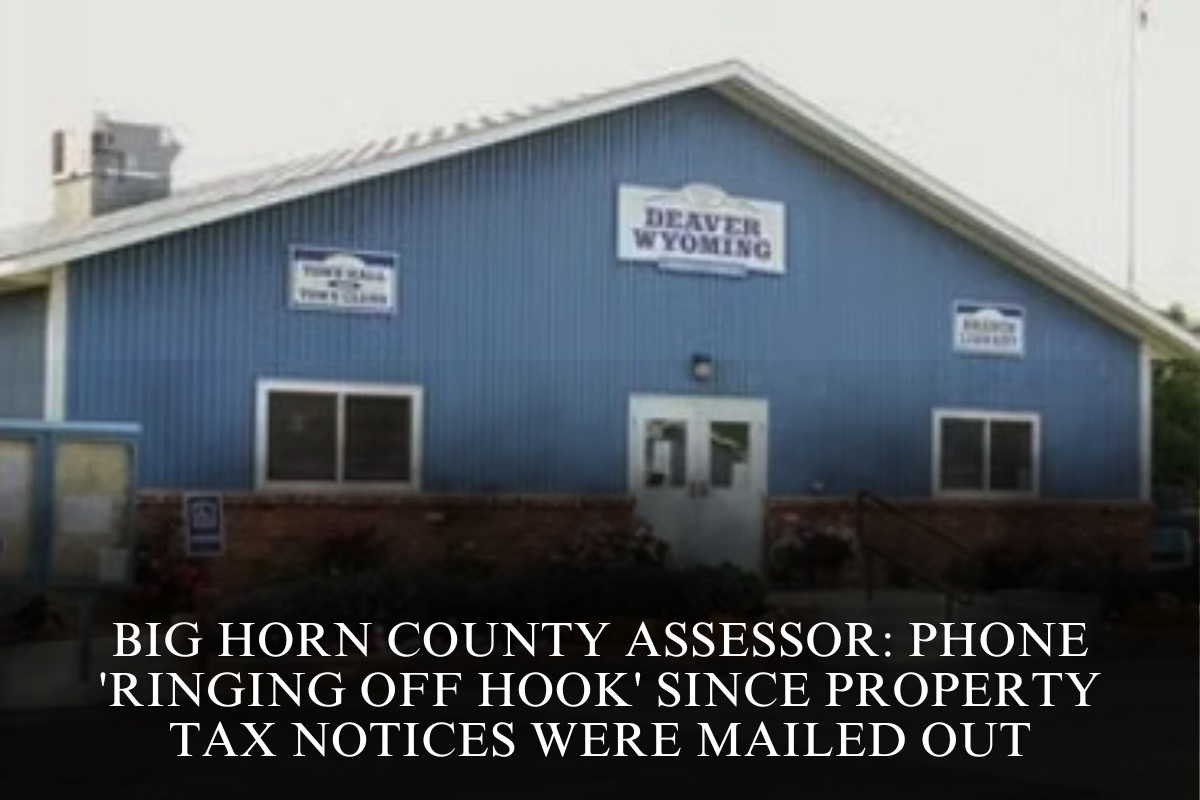Rep. Harriet Hageman’s stop in Greybull on Tuesday, June 17, was fraught with conflicting opinions, a theme that has appeared to reoccur throughout her travels across the state.
The meeting, held at Greybull High School, was part of Hageman’s, R-Wyo., annual effort to hold a town hall in every county in the state. It came after the House reconciliation bill was passed on May 22, and if approved, it will become part of the “One Big Beautiful Bill” Act.
This event differed from the typical town hall format in that attendees submitted handwritten questions to the congresswoman, who then drew from a bucket.
There was a good turnout for the town hall. While the audience was not invited to speak, some expressed their concerns to Hageman and each other as the town hall progressed.
Vocal protestors accused Hageman of picking and choosing questions as she struggled to read handwriting, and even called her back to the microphone when she attempted to end the hour-long ordeal four minutes earlier.
“We’re not hecklers, we’re your constituents,” one man yelled.
Hageman claimed that hateful rhetoric had fuelled the shift to her submitted question format.
“You can’t just engage in a conversation where I report what’s going on and then we have a question-and-answer situation,” Hageman told me.
Questions submitted to Hageman included discussions about Medicaid cuts that could affect rural hospitals and nursing homes, as well as individuals who rely on the service and are concerned about how reduced access to social services will affect their ability to support themselves.
Hageman claimed that Wyoming would be unaffected by proposed Medicaid cuts because the state had not implemented Obama-era expansions that covered able-bodied adults, who will now be required to meet additional work, volunteer, or schooling requirements to receive benefits.
She stated that 1.4 million illegal aliens and 1.6 million people were receiving Medicaid benefits in two states.
Hageman advised her constituents, who have complained about not receiving promised Medicaid, Medicare, and Social Security payments, to contact her office.
“If there is a specific situation, please contact my office. “In my 2.5 years in Congress, we have resolved over 3,000 cases on behalf of Wyoming constituents,” Hageman stated.
Similarly, the audience enquired about federal funding cuts for libraries, museums, NPR, and PBS. Hageman stated that funds for the fiscal year 2025 should still be available, and she encouraged constituents to file a case with her office if their organisations are not receiving the promised funding.
Regarding NPR and PBS, Hageman stated that people have “the right and perhaps the obligation” to support those programs through donations rather than government funding.
Many questions concerned immigration, DEI, and foreign policy.
According to Hageman, the House Armed Services Committee was instructed to provide $100 billion in additional military funding through the reconciliation bill, but ended up increasing spending by $143 billion. This came before the announcement that the United States was bombing Iran this weekend.
On immigration, the House Judiciary Committee, of which Hageman is a member, had approved funding for 1 million annual removals, 10,000 new ICE personnel, and 701 miles of primary border wall construction.
The bill would also establish a fee system for immigration-related applications and processes, which Hageman estimated would increase revenue by $77 billion.
A question from the audience expressed concern about a potential drop in foreign tourism as a result of the Trump administration’s handling of tariffs and foreign policy.
“I spoke with some people at the National Park Service, and they don’t expect a decrease.
Our National Park Service is currently fully staffed and funded with volunteers and the number of employees that they typically have,” Hageman stated, which her audience disputed.
She then enquired whether there had been a decrease in tourism in the Big Horn Basin, to which several local business owners responded, “Yes!”
“We can sure follow up on that with some of the hotels and the restaurants,” Hageman told me.
The House Committee on Natural Resources, to which Hageman belongs, proposed resuming quarterly onshore oil and gas lease sales and returning oil and natural gas royalty rates to pre-Inflation Reduction Act levels.
If the reconciliation bill passes as written, coal leasing on federal land will resume, and at least one 20-year lease for timber harvesting on Forest Service lands will be issued each year. Leased land would be unaffected by the proposed public land sales.
As Hageman concluded the town hall, she was met with a mixture of support and scorn.
Overall, Hageman stated, “I’m excited about where the Big Beautiful Bill is.”












